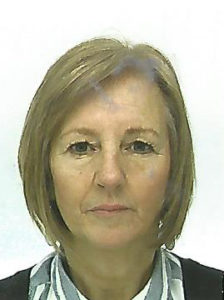
Ahead of our BSL interpreted show with Trio HLK and Dame Evelyn Glennie, we spoke to interpreter Jane Kelsall about interpreting live music and theatre for Deaf/deaf audience members:
How did you first get into BSL interpreting?
It started as a hobby when my youngest son started school. I did a 12-week intro course and absolutely loved it so started working towards my qualifications. I had an uncle who was deaf and signed – I don’t know if that was the trigger, but I do remember seeing him sign when I was little.
Within a couple of years, I started working in schools, supporting children who were deaf but didn’t sign. Then I got a job after achieving my BSL level 2 at Doncaster Deaf Trust at their specialist communication college for 8 years, where I had a lot of in-house training. And then later worked as a Communication Support Worker, supporting students in Leeds.
I didn’t initially aim to be an interpreter but, wanting to learn more, I wanted to continue to develop my skills. I worked as an in-house interpreter for 6 months then went freelance and I haven’t looked back!

Jane Kelsall
How do you about preparing for interpreting a show?
That depends on the show. When prepping for theatre productions, I start working with the script well in advance as possible, but that’s not always the case. I’ll then go along to a couple of rehearsals, so I get a feel for the pace and dynamics of the show.
I love the expressive side of doing theatre work – there’s more room for creativity and improvisation. BSL is a language in its own right and as there aren’t specific signs for every word, the language is expressed using facial expressions, body movements and placements to get the meaning across. It’s a very visual language.
Will you be taking a different approach for the show with Trio HLK and Evelyn Glennie, given that there are no songs with lyrics?
This is new to me – I’ve previously worked mainly with music with lyrics. I’ll listen to all the music beforehand, so I get a real feel for it. Then I’ll work on ways of describing what the music sounds like – it’s like making a picture of the sound and you can be really creative with it.
The beauty with songs and music is that you can be really expressive, using the whole body. It’s different to other interpreting. Gestures get bigger as the music gets louder and my signing position changes as the pitch goes up and down.
I’m looking forward to the challenge of interpreting a live show with lots of improvisation!

Trio HLK & Dame Evelyn Glennie
What’s the most memorable show you’ve worked on and why does it stand out?
There was a production of The Glee Club at CAST in Doncaster that needed an interpreter with 2 weeks’ notice – I had to learn the script and lots of songs (including one in Italian!) in a really short space of time.
I’ve also done a few pantos now, which I really enjoy. I learned early on that you have to be quite careful when interpreting the innuendos in panto scripts. Children might miss the meaning of the words on their own but when you combine the words with signs, gestures and other visual cues, they can quickly work them out!
Why do you think it’s important that shows feature BSL interpretation?
For me, accessibility is key and it’s really important to give people the experience of live music and theatre same as everyone else. I see my job as being there for Deaf/deaf people who want that same experience that we (hearing) have, and to enjoy it.
You can see Jane in action at our show with Trio HLK and Dame Evelyn Glennie at Hull Truck Theatre on Saturday 17 November. Tickets available now from Hull Truck Theatre box office.
